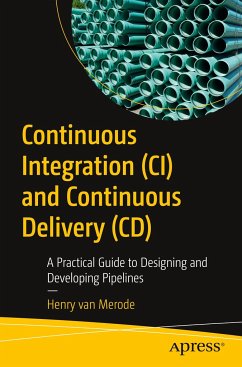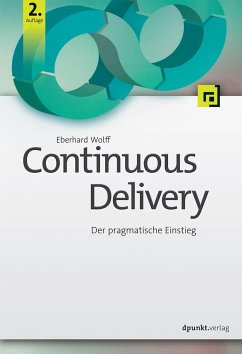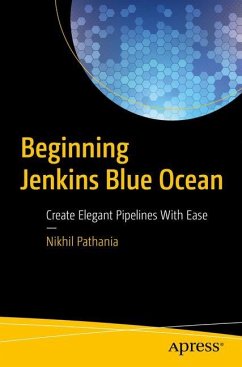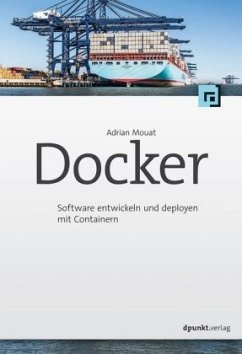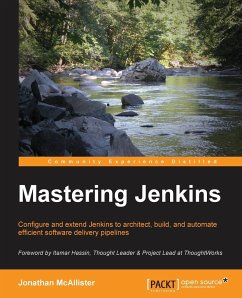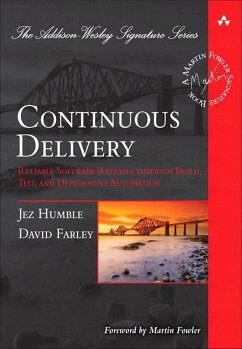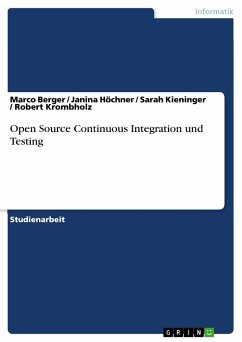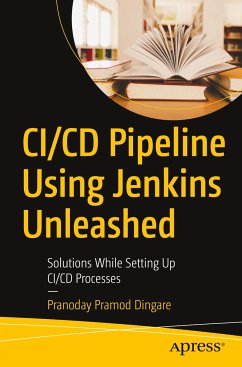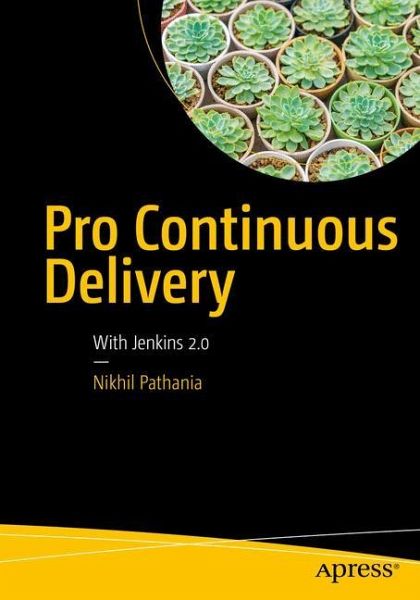
Pro Continuous Delivery
With Jenkins 2.0

PAYBACK Punkte
21 °P sammeln!
Follow this step-by-step guide for creating a continuous delivery pipeline using all of the new features in Jenkins 2.0 such as Pipeline as a Code, multi-branch pipeline, and more. You will learn three crucial elements for achieving a faster software delivery pipeline: a fungible build/test environment, manageable and reproducible pipelines, and a scalable build/test infrastructure. Pro Continuous Delivery demonstrates how to create a highly available, active/passive Jenkins server using some niche technologies.What You'll LearnCreate a highly available, active/passive Jenkins server using Cor...
Follow this step-by-step guide for creating a continuous delivery pipeline using all of the new features in Jenkins 2.0 such as Pipeline as a Code, multi-branch pipeline, and more. You will learn three crucial elements for achieving a faster software delivery pipeline: a fungible build/test environment, manageable and reproducible pipelines, and a scalable build/test infrastructure.
Pro Continuous Delivery demonstrates how to create a highly available, active/passive Jenkins server using some niche technologies.
What You'll LearnCreate a highly available, active/passive Jenkins server using CoreOS and Docker, and using Pacemaker and Corosync
Use a Jenkins multi-branch pipeline to automatically perform continuous integration whenever there is a new branch in your source control system
Describe your continuous delivery pipeline with Jenkinsfile
Host Jenkins server on a cloud solution
Run Jenkins inside a container using Docker
Discover how the distributed nature of Git and the "merge before build" feature of Jenkins can be used to implement gated check-in
Implement a scalable build farm using Docker and Kubernetes
Who This Book Is For
You have experience implementing continuous integration and continuous delivery using Jenkins freestyle Jobs and wish to use the new Pipeline as a Code feature introduced in Jenkins 2.0
Your source code is on a Git-like version control system (Git, GitHub, GitLab, etc.) and you wish to leverage the advantages of a multi-branch pipeline in Jenkins
Your infrastructure is on a Unix-like platform and you wish to create a scalable, distributed build/test farm using Docker or Kubernetes
You are in need of a highly available system for your JenkinsServer using open source tools and technologies
Pro Continuous Delivery demonstrates how to create a highly available, active/passive Jenkins server using some niche technologies.
What You'll LearnCreate a highly available, active/passive Jenkins server using CoreOS and Docker, and using Pacemaker and Corosync
Use a Jenkins multi-branch pipeline to automatically perform continuous integration whenever there is a new branch in your source control system
Describe your continuous delivery pipeline with Jenkinsfile
Host Jenkins server on a cloud solution
Run Jenkins inside a container using Docker
Discover how the distributed nature of Git and the "merge before build" feature of Jenkins can be used to implement gated check-in
Implement a scalable build farm using Docker and Kubernetes
Who This Book Is For
You have experience implementing continuous integration and continuous delivery using Jenkins freestyle Jobs and wish to use the new Pipeline as a Code feature introduced in Jenkins 2.0
Your source code is on a Git-like version control system (Git, GitHub, GitLab, etc.) and you wish to leverage the advantages of a multi-branch pipeline in Jenkins
Your infrastructure is on a Unix-like platform and you wish to create a scalable, distributed build/test farm using Docker or Kubernetes
You are in need of a highly available system for your JenkinsServer using open source tools and technologies





